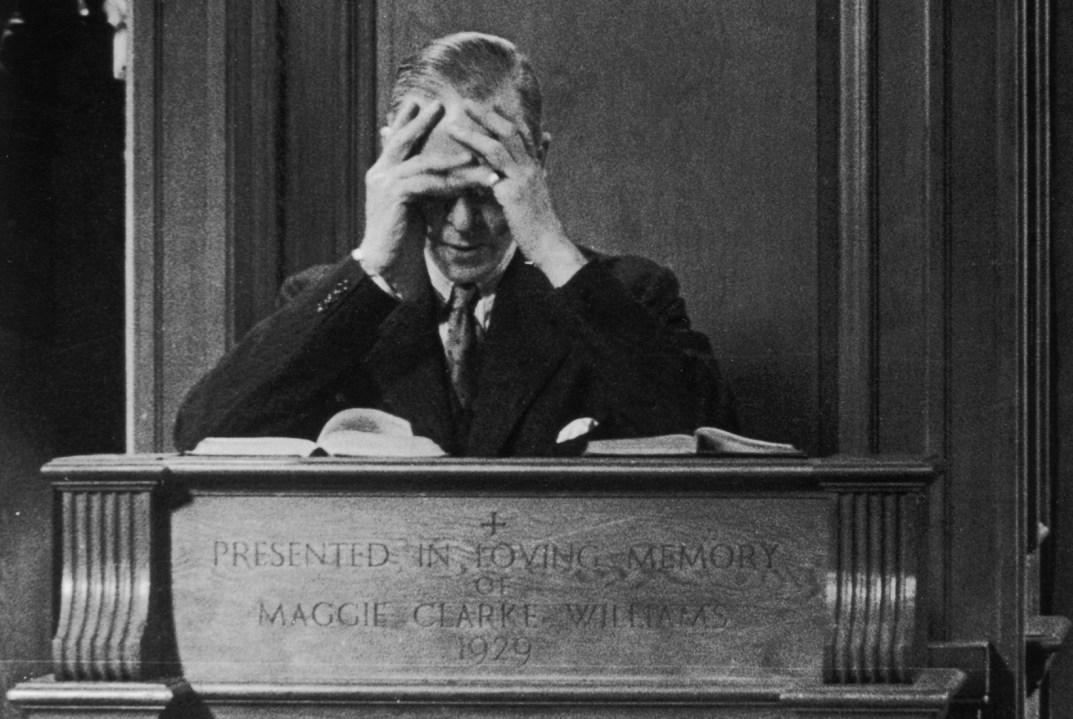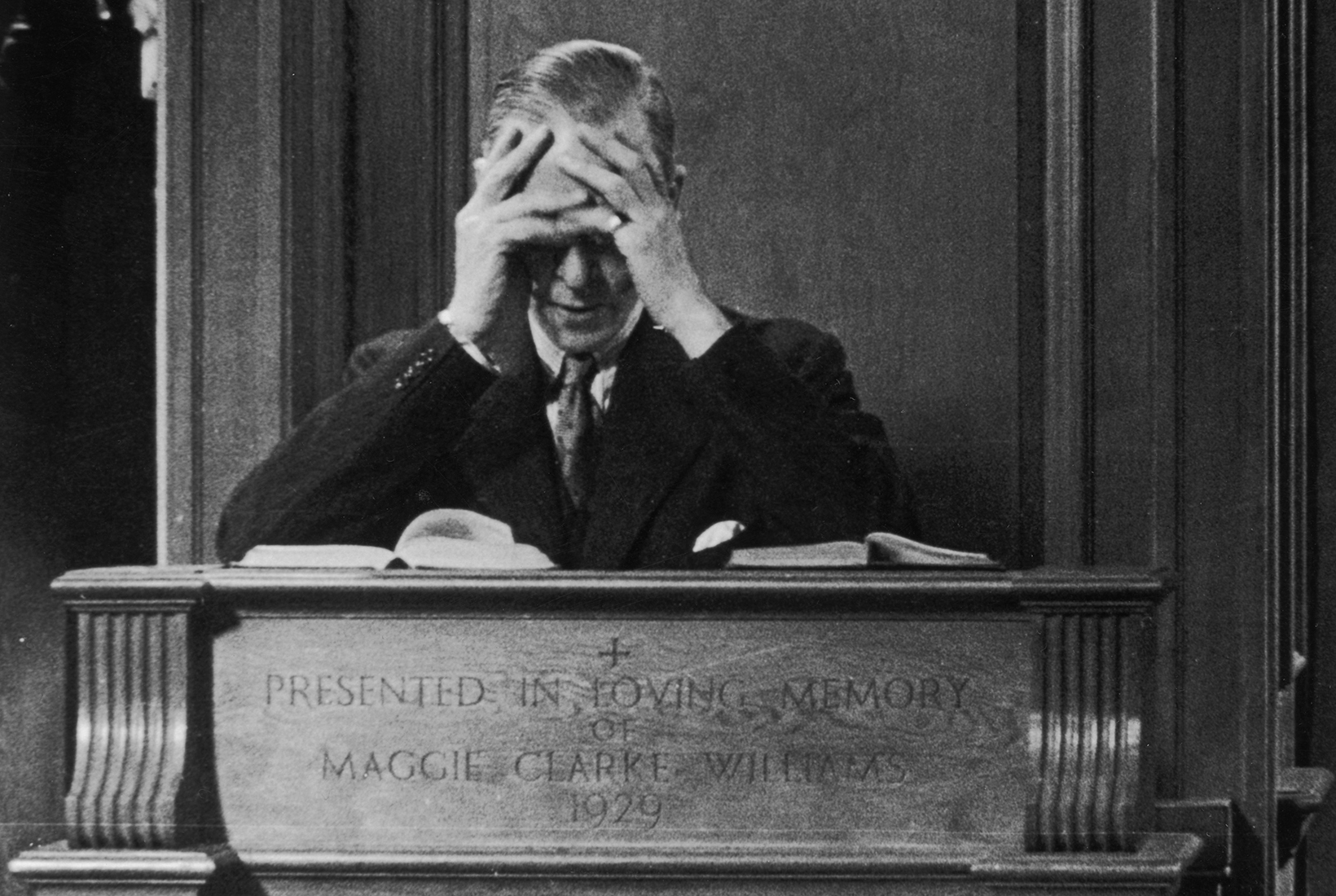At a well-reported political meeting at London’s Queen’s Hall during the first world war the preacher and suffragette Maude Royden used a phrase that would pass into history. ‘The Church shall go forward along the path of progress,’ she argued hopefully, ‘and be no longer satisfied to represent the Conservative party at prayer.’ ‘Conservative’ would soon slip to ‘Tory’, and one of the most popular and potent political epithets of the 20th century was born.
There was (and is) much evidence for Royden’s famous phrase. An Anglican-Conservative complex dominated much 19th-century politics when most English — indeed much British — politics could be effectively divided along the lines of church or chapel. Throughout the 20th century, with the exceptions of 1966 and 1997, self-identifying Anglicans were more likely to vote Conservative than Labour. Even today, as research conducted by the think tank Theos has shown, Anglicans are disproportionately Tory, although this has more to do with age and cultural identification than with theological conviction.
Yet Royden’s point was precisely that while this alignment had been the case, it would no longer necessarily be so, and she was right. As this intelligent volume of essays demonstrates, the true picture of established ecclesiastical politics in the 20th century is a complex and varied one.
In reality, the Anglican Church was never as monolithically Tory as the caricature would have it. In the early years of the century, leading churchmen were, if anything, unduly keen to distance themselves from the Conservative party, largely because they knew that if they didn’t they would be vulnerable to accusations of sectional interest that could prove fatal to the claim to be a national, unifying church.
As time progressed, a number of leading Labour lights — George Lansbury, R.H. Tawney, Sir Stafford Cripps, Eric Heffer, Tony Blair — were believing Anglicans. And on several occasions towards the end of the century, over issues such as the Falklands, South Africa and Thatcherism, the Church almost became Her Majesty’s Unofficial Opposition. In this regard, Royden’s prophecy came good. The modern picture of the Church of England as ‘Guardian readers preaching at Mail readers’ is no less a caricature than the ‘Tory party at prayer’.
Political scientists have also long concurred with Royden’s prediction about the Church’s role in 20th-century politics, but only by insisting that religion as a whole became irrelevant. Increasingly empty churches gave way to overflowing union meetings. Who cared which party was praying now? ‘Class is the basis of British politics,’ Peter Pulzer claimed in 1967. ‘All else is embellishment and detail.’
But that too is overdrawn, as this book shows. If anything, the established Church’s political role became more important in the 20th century than it had been in the 19th — which may seem counter-intuitive, given the relative health of Victorian churchgoing and decline of Edwardian and Elizabethan congregations. But 19th-century Anglican politics was fiercely contested by non-conformists, and often condemned for being ‘political’ in the narrow, partisan sense. For much of the last quarter of that century, the Church was on the back foot, defending establishment from dissenters who smelt Anglican blood.
This had faded by the first world war, and had all but disappeared by the mid 1920s, leaving the Anglican Church as the unquestioned first among ecclesiastical equals. The second world war cemented this role, with the state treating the Church as if it were the department for national morale and spiritual health. One of the many fascinating details we now learn is quite how many national days of prayer the wartime government, rather than the Church, asked for. Indeed, the state pretty much commandeered the institution from the churches, to the extent that
requests from ministers and officials for ‘special Sundays’ became so frequent that they aroused criticism among the clergy and threatened to congest the Church calendar.
This book does not set out to slay sacred cows; but it does what all good academic history should do in drawing out nuances that get lost in the familiar picture. It is perhaps a little too weighted in favour of the first half of the century. Bishop Herbert Hensley Henson may well have been ‘the most remarkable English churchman of this age’, as S.D.J. Green says in his chapter on him, but it is doubtful that he merits two chapters. Nevertheless, the collection is a fine contribution to the small sub-discipline of God and Caesar in modern Britain.







Comments